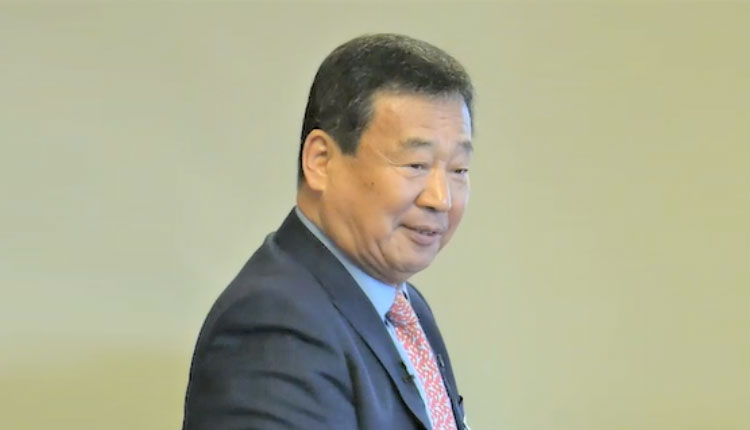CEO Spotlight: Choong Whan Park Examines the Importance of Consumer Psychology in Branding

Branding expert Choong Whan Park breaks down the role of consumer psychology in strategic branding decisions.
Consumer behavior started as a field of study and marketing in the mid-1900s and developed rapidly in the post-war years. As marketing opportunities have evolved, new research developed by academics like Professor Choong Whan Park has helped transition the field from television marketing to online shopping, social ad research, and important contemporary decisions like branding.
His research contributions lean heavily into branding, and he served as Director of the Global Branding Center at The University of California before retiring in 2021. As a new company establishes a brand or an existing company rebrands, knowledge of consumer preferences and messaging are essential to appeal to the right target market and solidify consumer opinion.
A brief history
Choong Whan Park has had a career that has been focused on evaluating consumer psychology since the 1970s and most recently expanded to academic research into brand attachment at the employee level.
Consistent findings demonstrate the value of attachment between the brand and the individual. With over six dozen publications in journals and books, he has tapped into all areas of branding, including mission-oriented branding with a focus on meaning and ideology.
In short, consumers want brands to exemplify the life they want or visualize themselves as having. Emotions and identity play a huge role in helping customers embrace a company.
Consumer attachment
Choong Whan Park and his long-standing consumer research have repeatedly demonstrated customers form strong bonds with their favorite brands and often strongly identify the brand with themselves. When this occurs, customers are often extremely loyal and proactively advocate on behalf of the brand.
For companies, designing a brand that helps inspire this type of consumer loyalty reduces paid advertising costs and drives both traditional word-of-mouth marketing and organic connections and shares on social media.
Emotional branding
Shopping strategies have played with emotions long-term by using sensory inputs like colors, music, scent, and even temperature to promote buying. For brands, these same techniques can be employed to promote connection with the company. Engaging in sensory interactions with consumers through social media, audible and visual advertising, and even live events can help align themselves with the emotions that drive their customers’ most profitable behaviors.
Identity
Choong Whan Park explains that consumers also like to craft their identity through products and often gravitate toward brands that promote shared beliefs or reinforce personal perceptions. Purchases then help the customer display those beliefs or feelings to friends, family, and other consumers.
Brands are a great example of cultivating an experience that validates personal feelings and allows for the projection of status, taste, and wealth to others. By leveraging the prestige factor, high-end companies are able to lock in customers who see the products as an extension of their identity.
This concept can be further leveraged through the creation of a more significant social identity that promotes feelings of community between consumers with a shared purchase history. From planner fans to exercise enthusiasts to wearable tech lovers, these devotees often create pop-up groups and websites devoted to in-depth discussions, tip sharing, and general discussions.
Have you read?
Best Business Schools In The World For 2022.
Best Fashion Schools In The World For 2022.
Best Medical Schools In The World For 2022.
Best Hospitality And Hotel Management Schools In The World For 2022.
The World’s Best Universities For Doctor of Business Administration (DBA), 2022.
Bring the best of the CEOWORLD magazine's global journalism to audiences in the United States and around the world. - Add CEOWORLD magazine to your Google News feed.
Follow CEOWORLD magazine headlines on: Google News, LinkedIn, Twitter, and Facebook.
Copyright 2025 The CEOWORLD magazine. All rights reserved. This material (and any extract from it) must not be copied, redistributed or placed on any website, without CEOWORLD magazine' prior written consent. For media queries, please contact: info@ceoworld.biz











